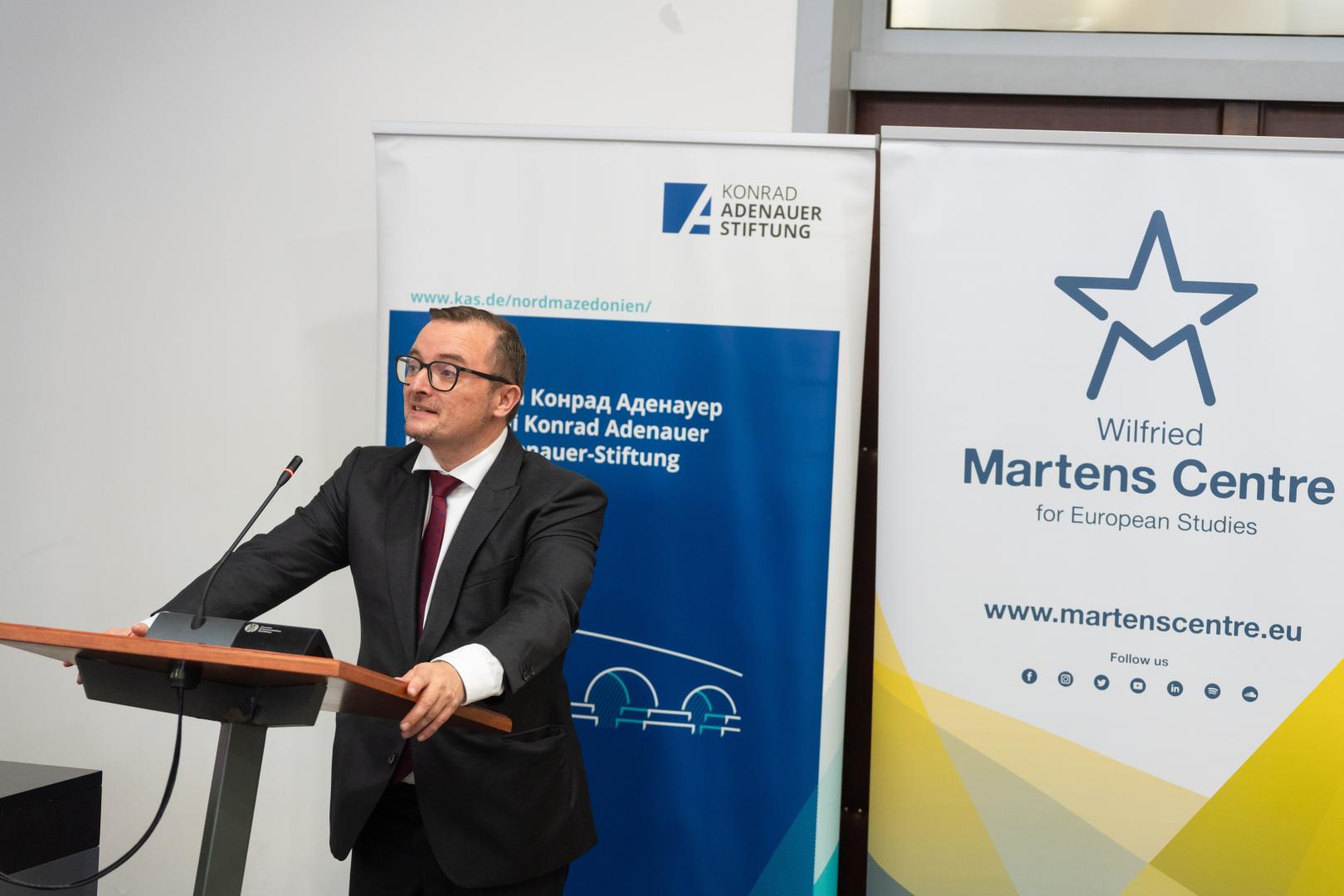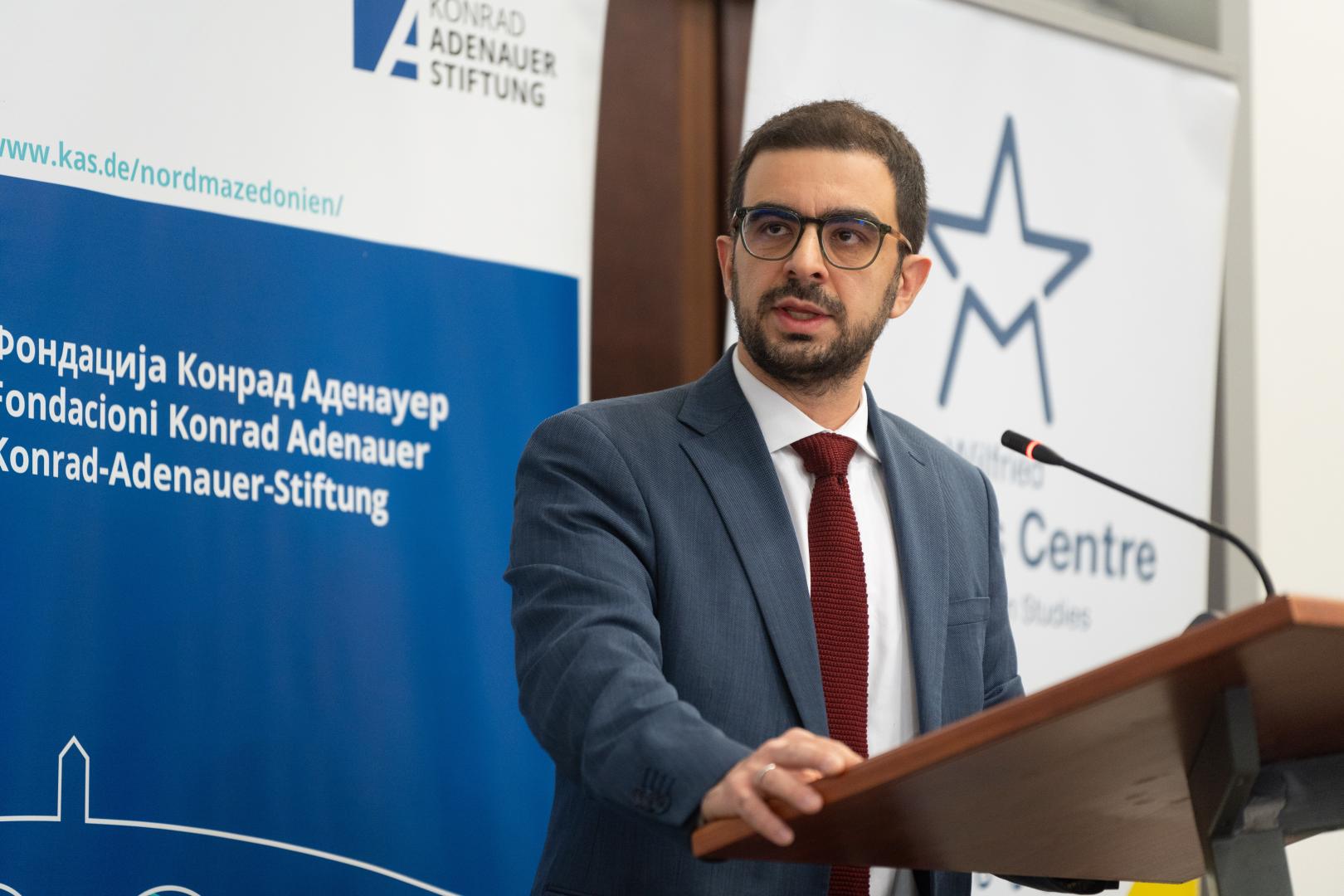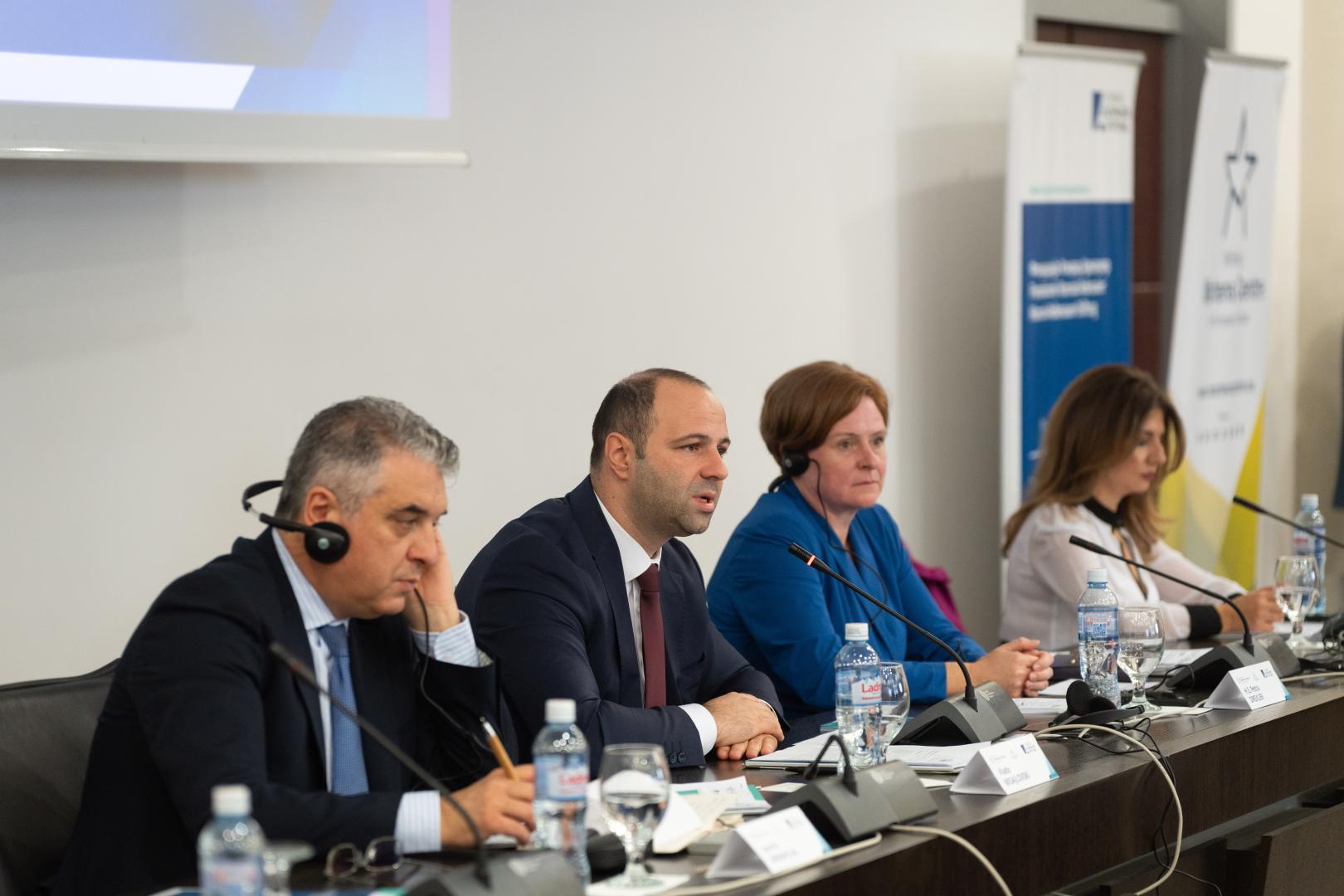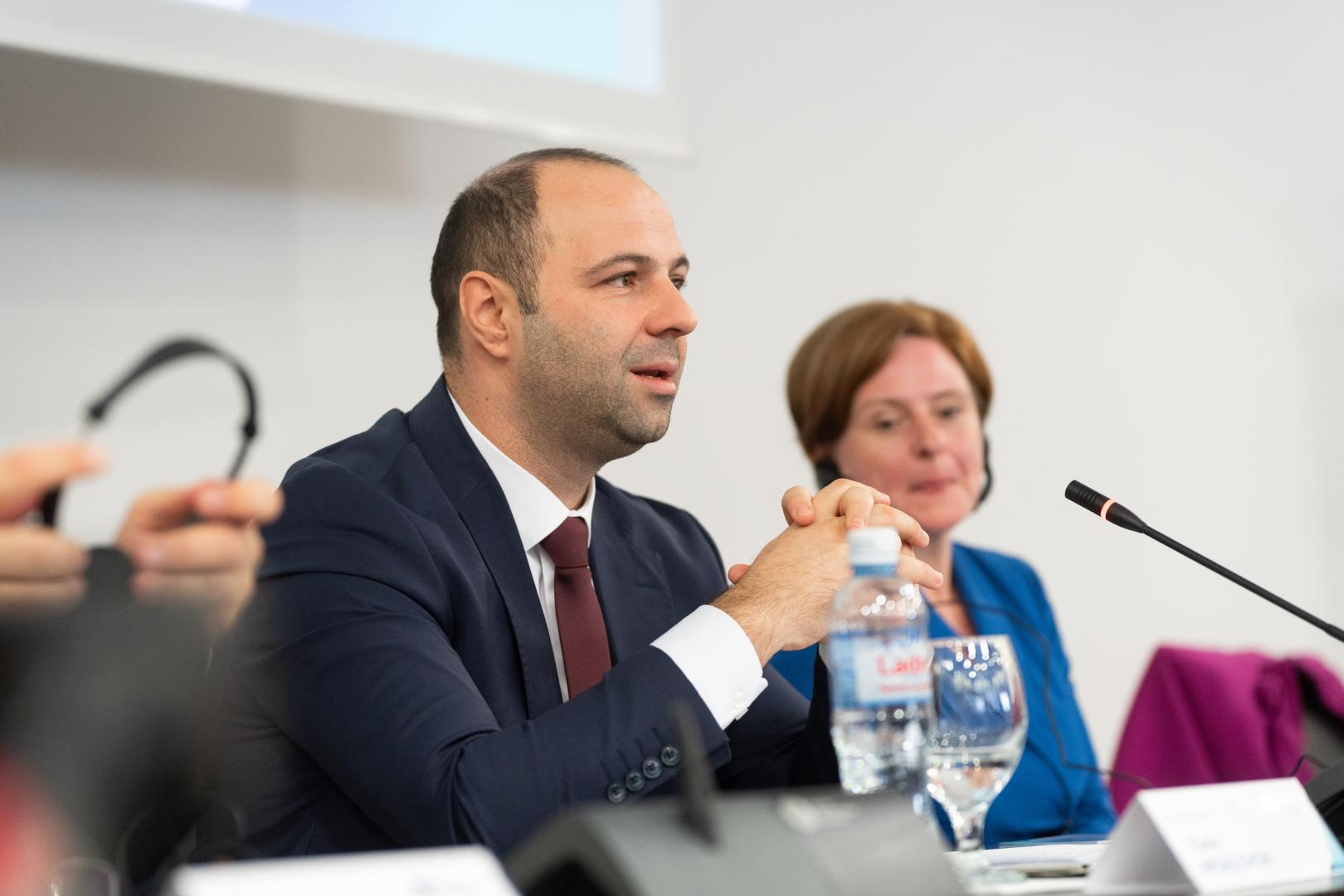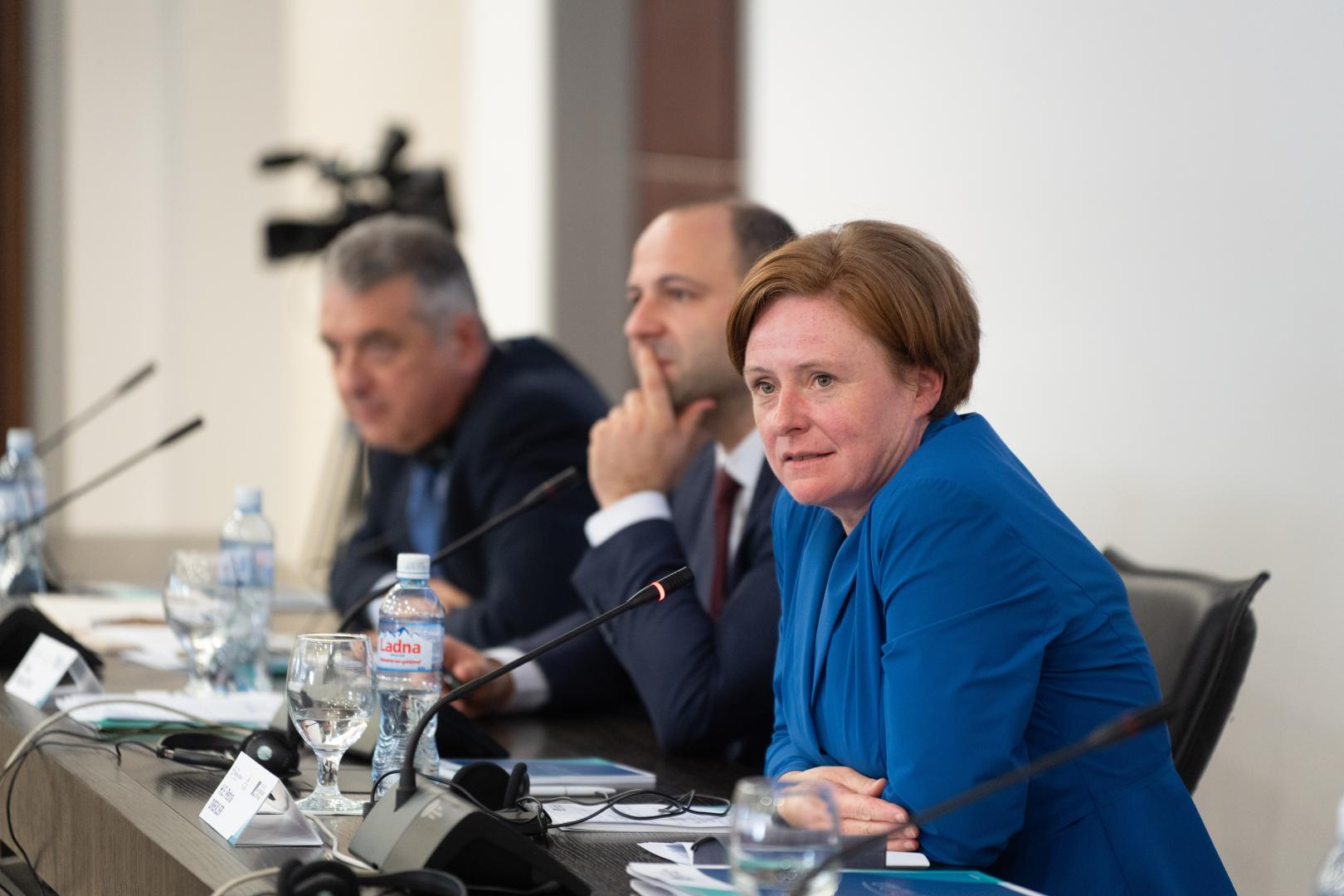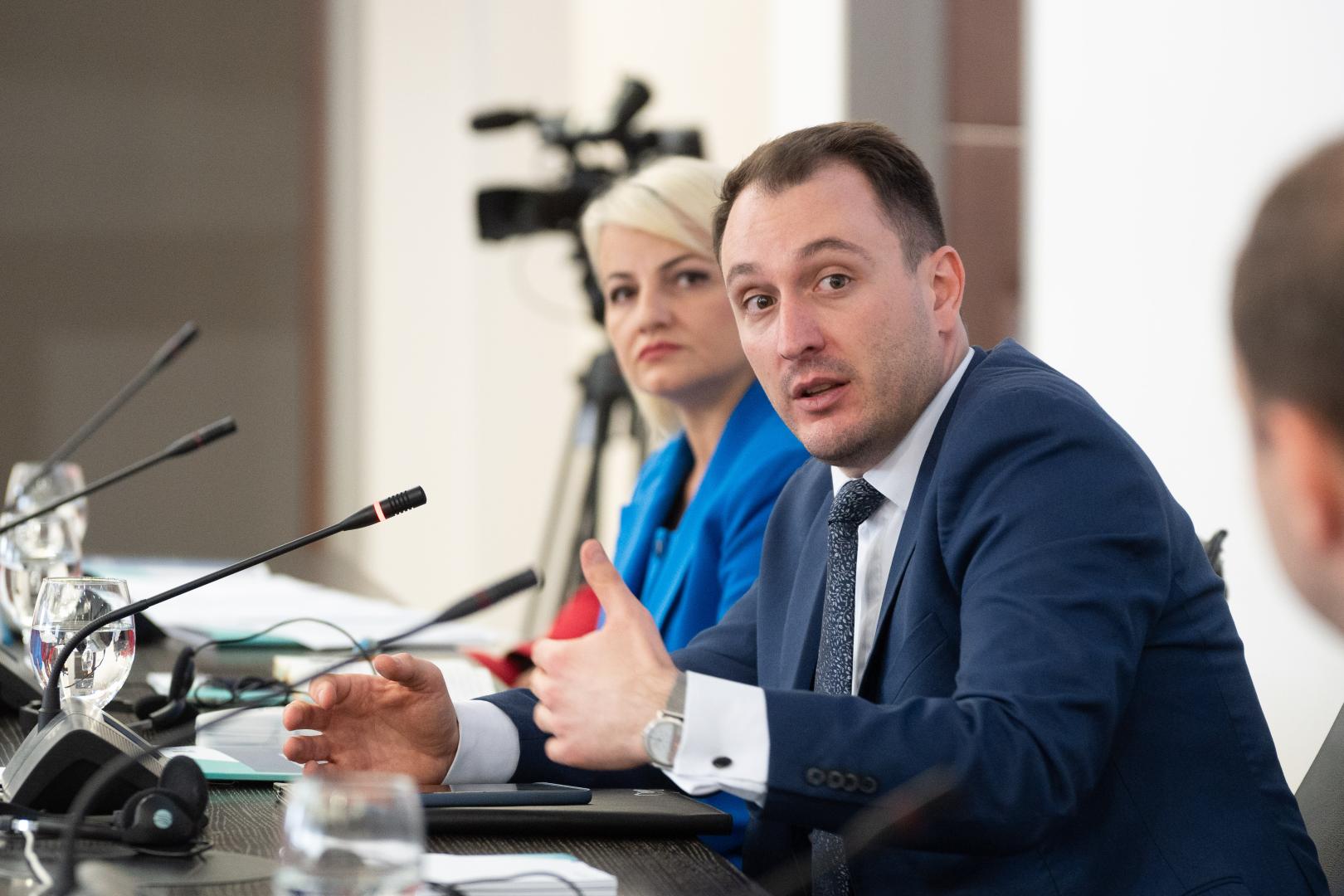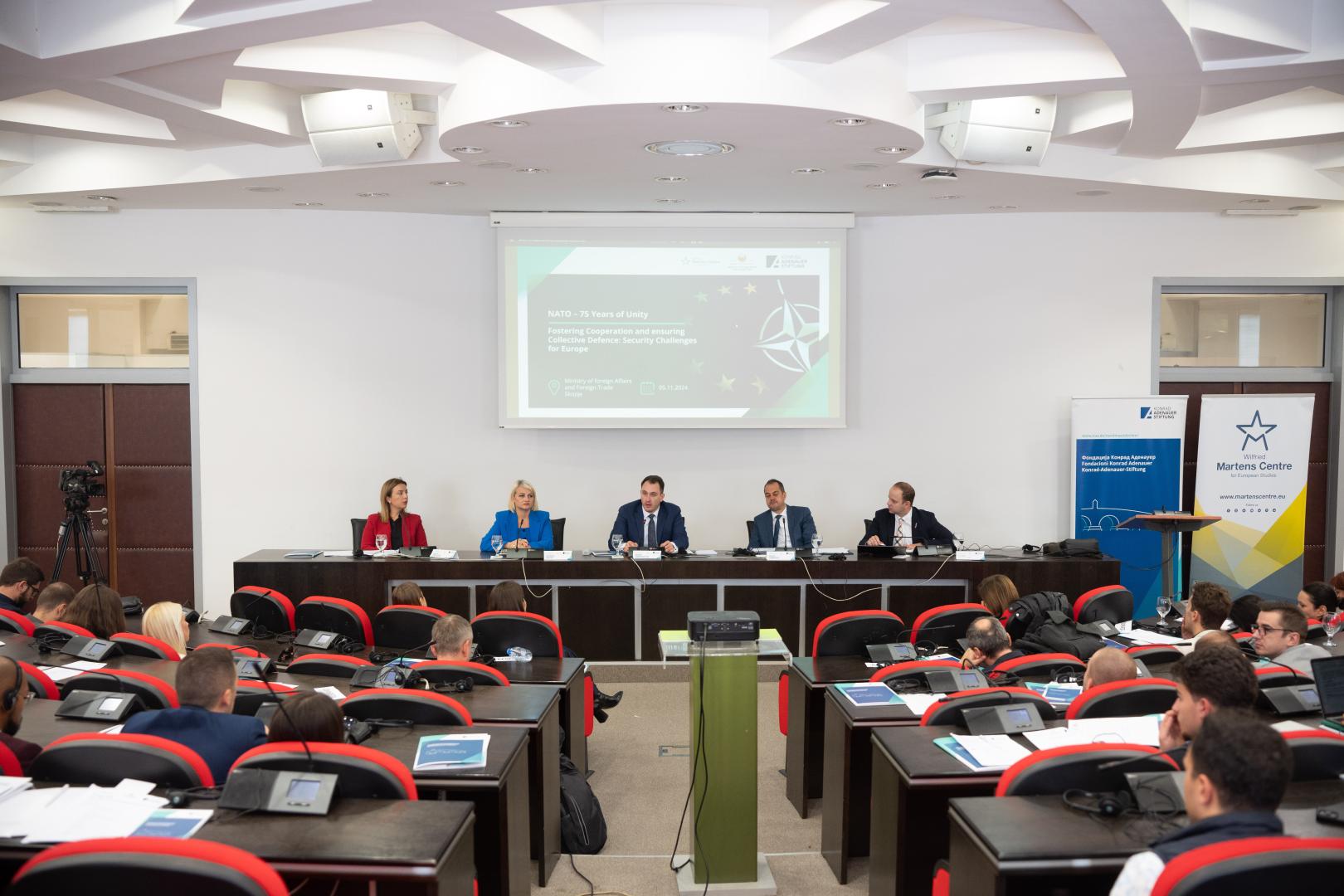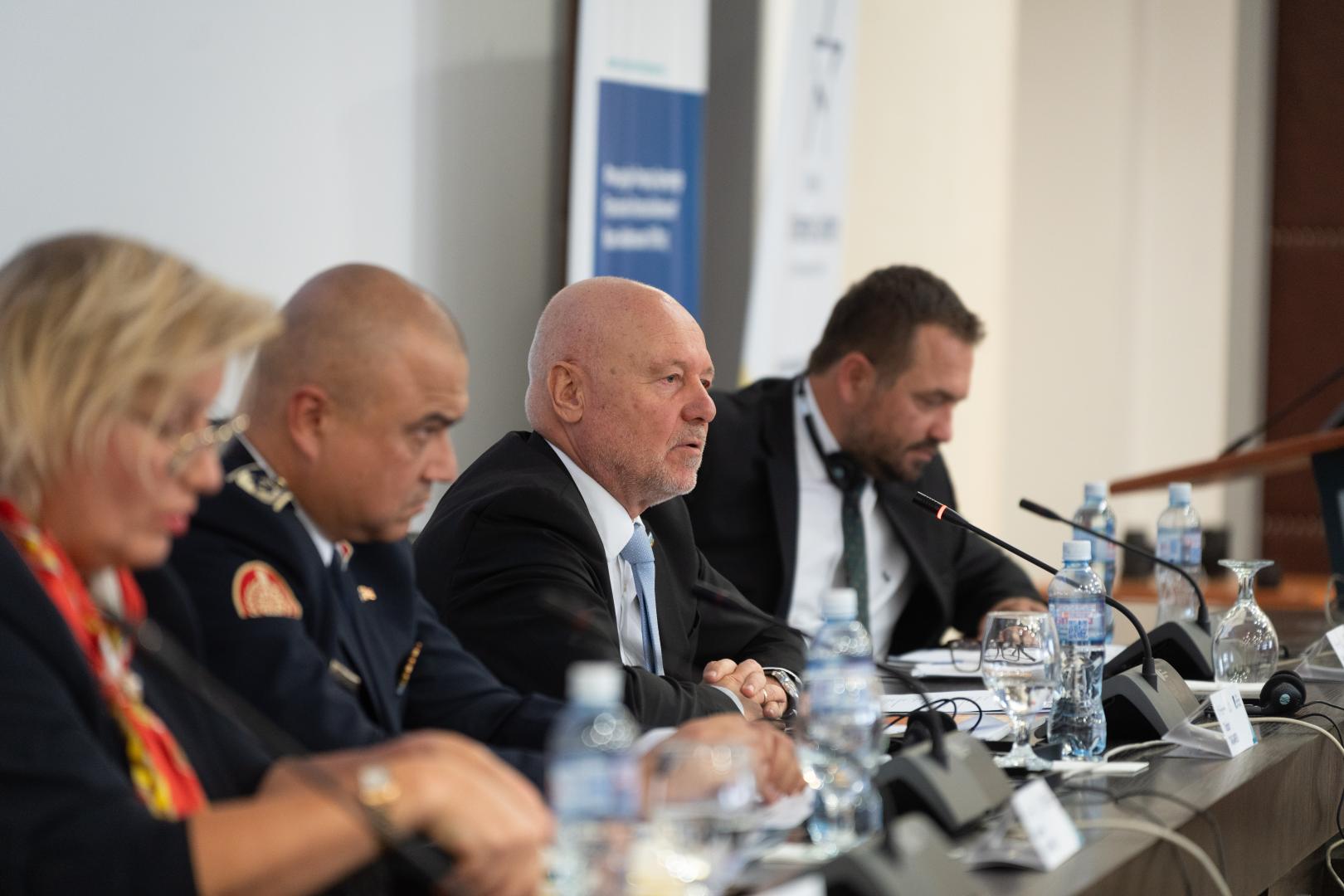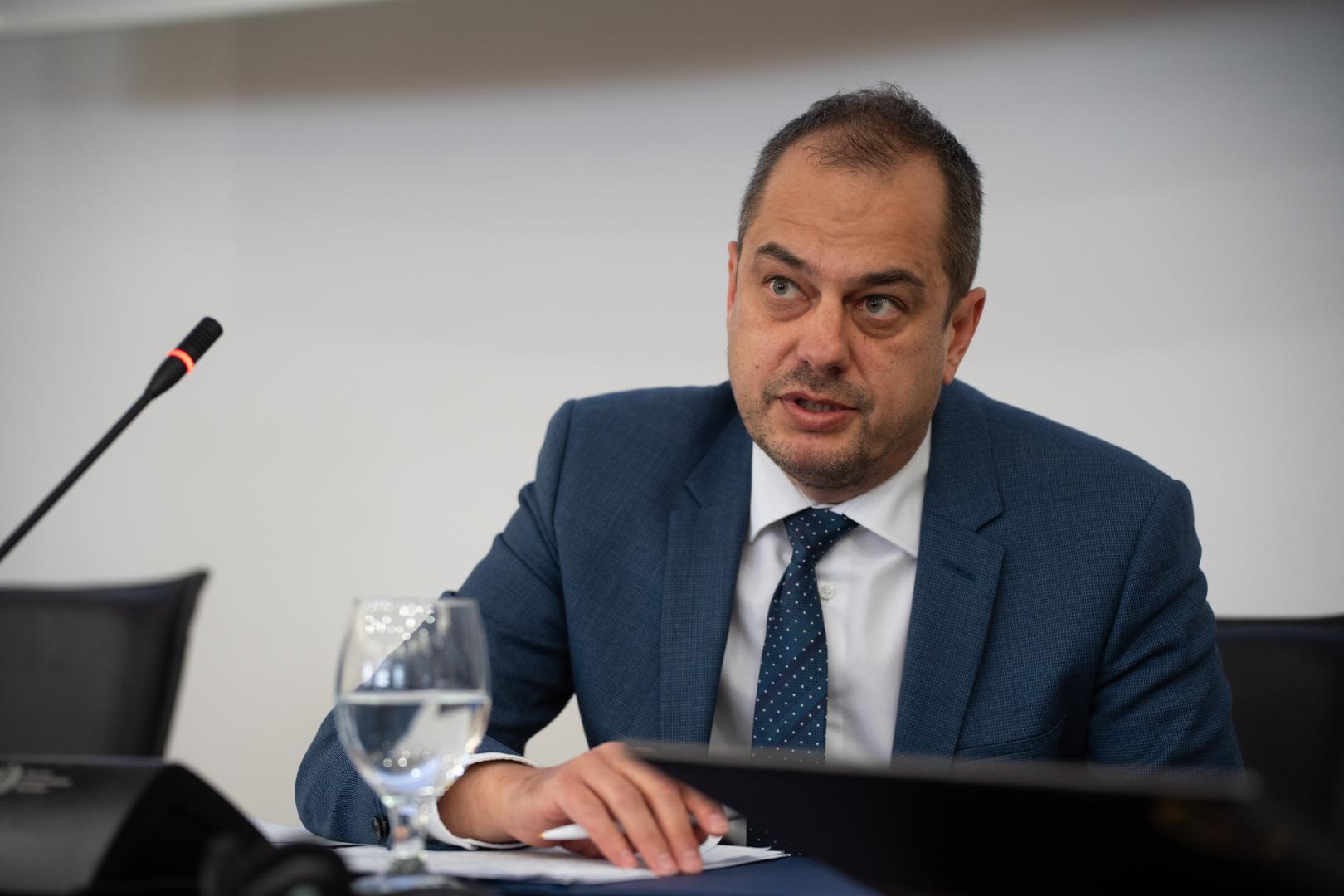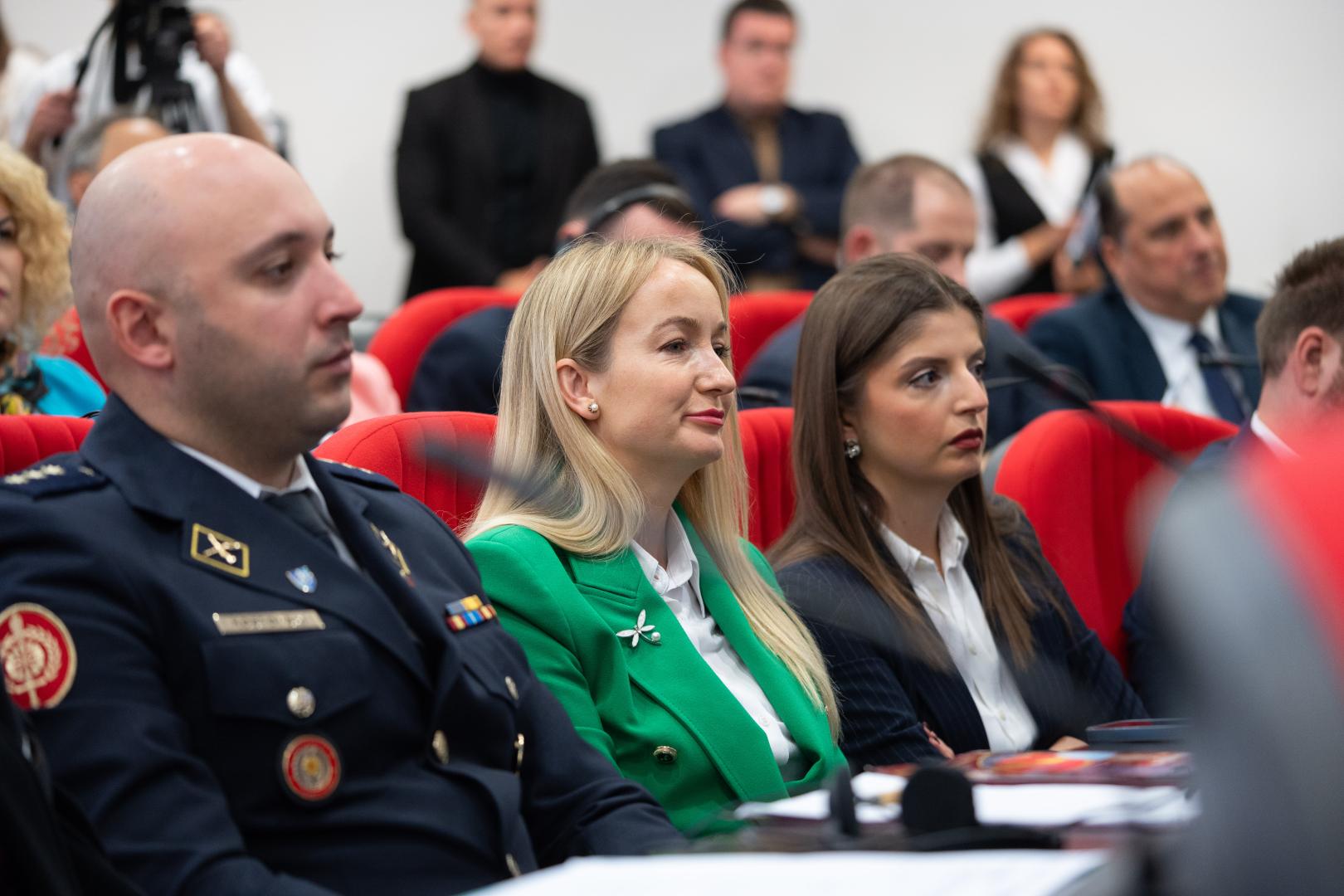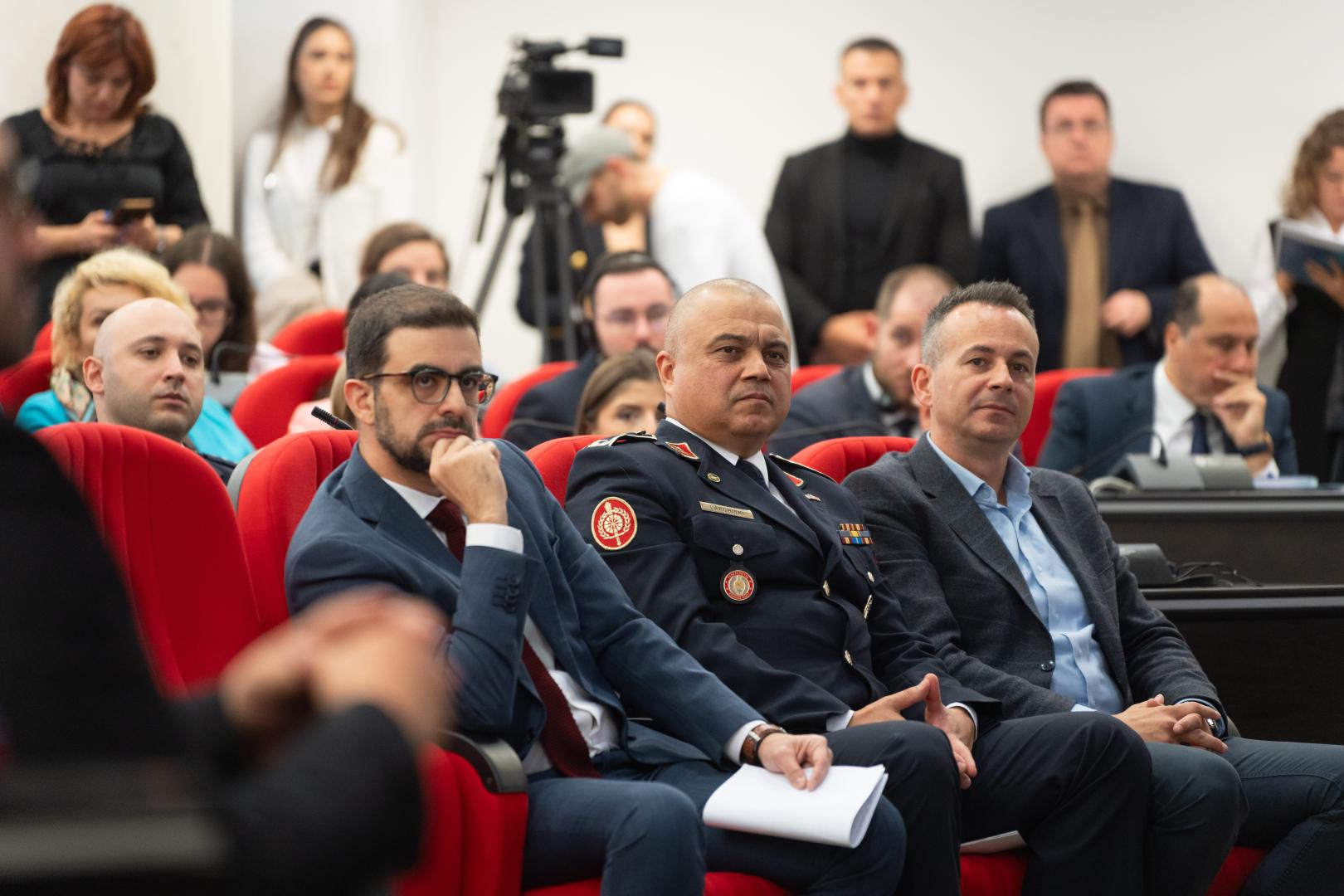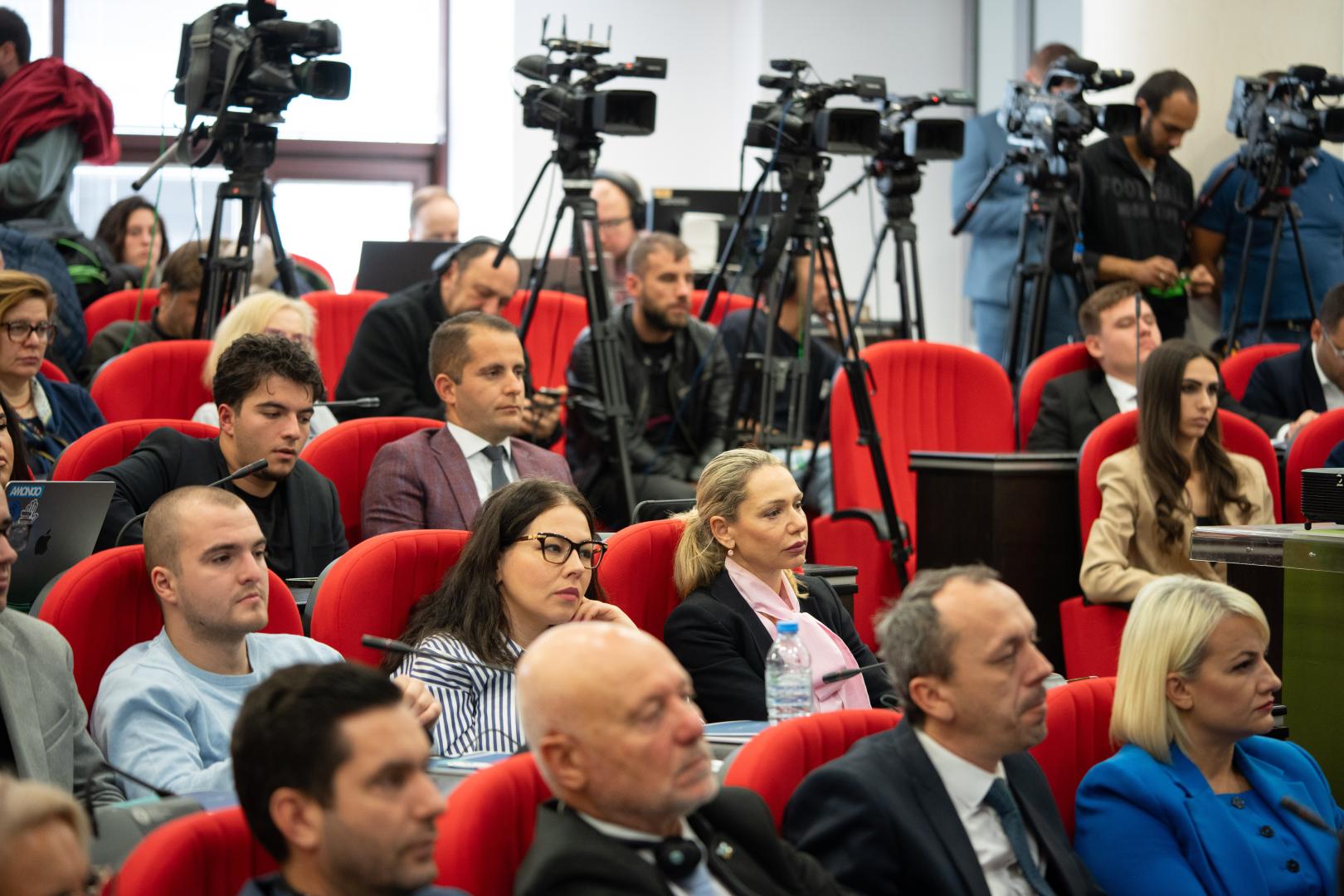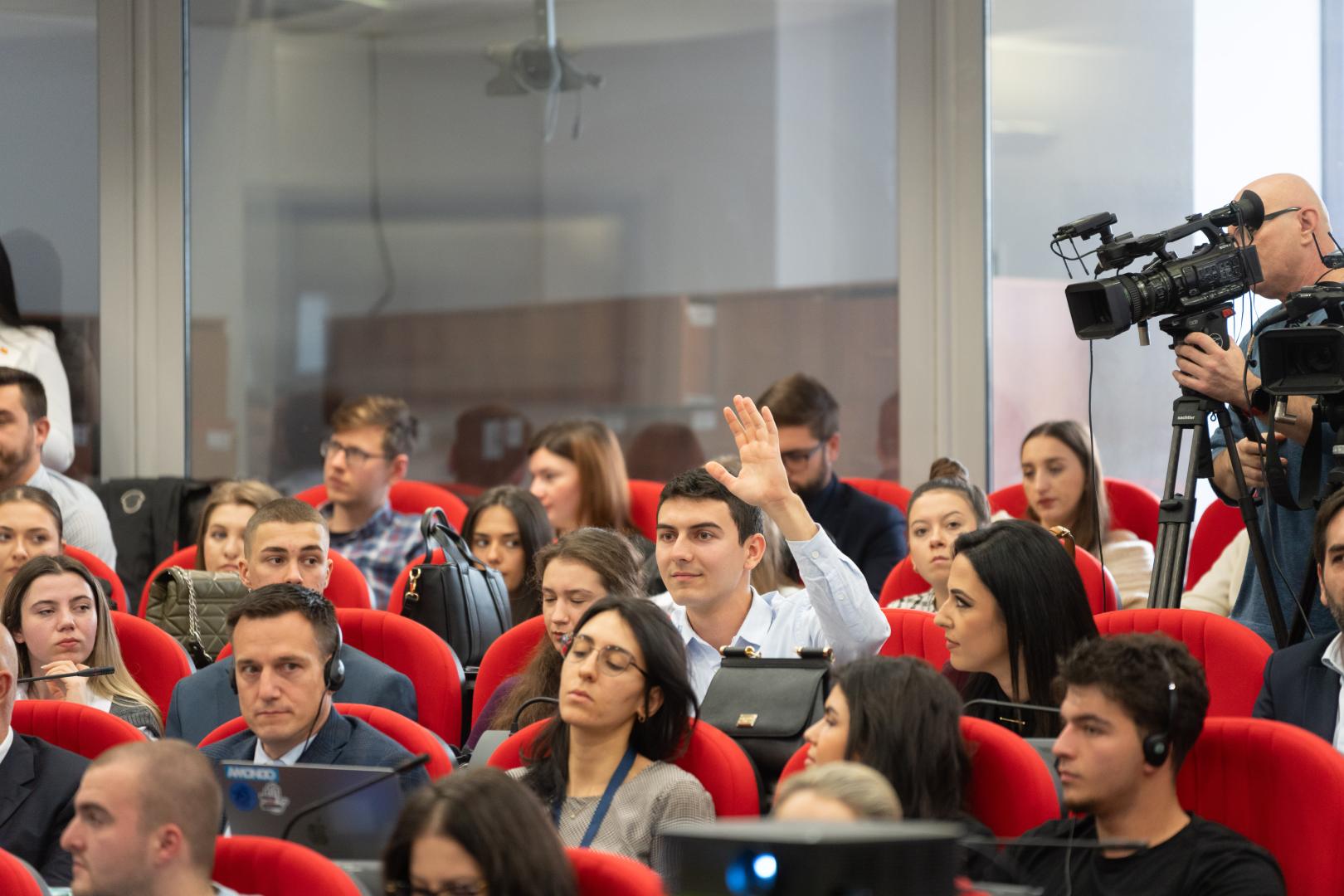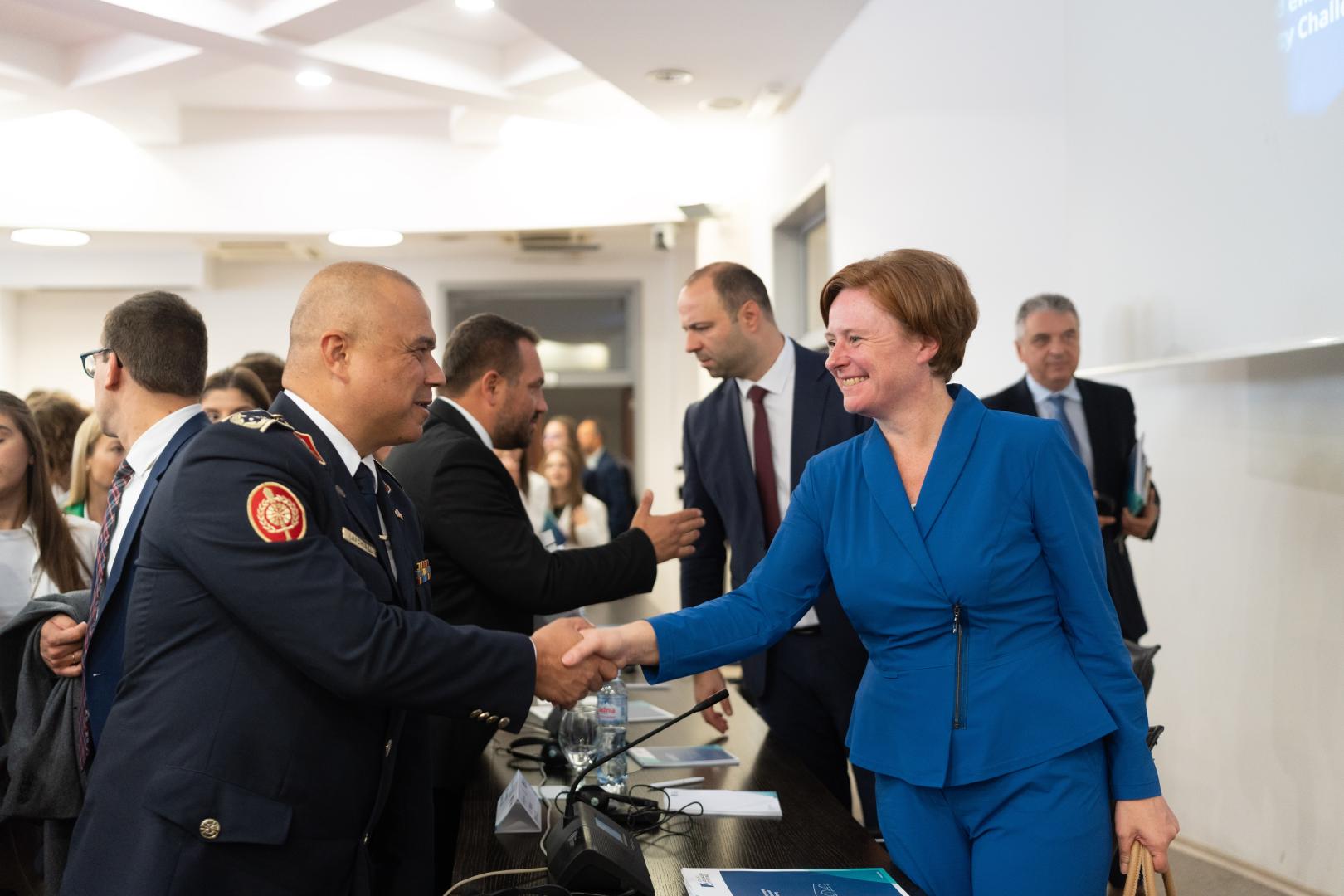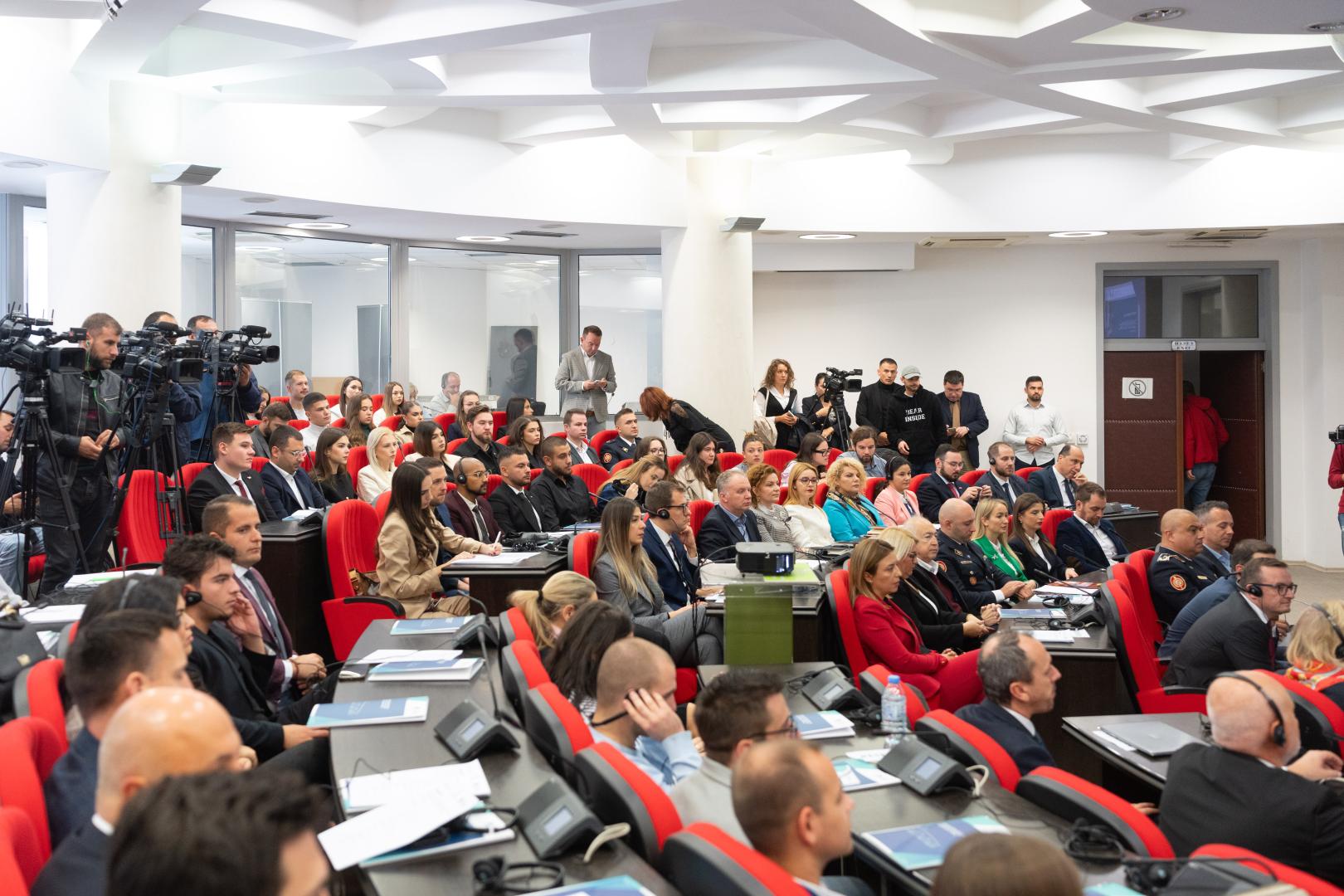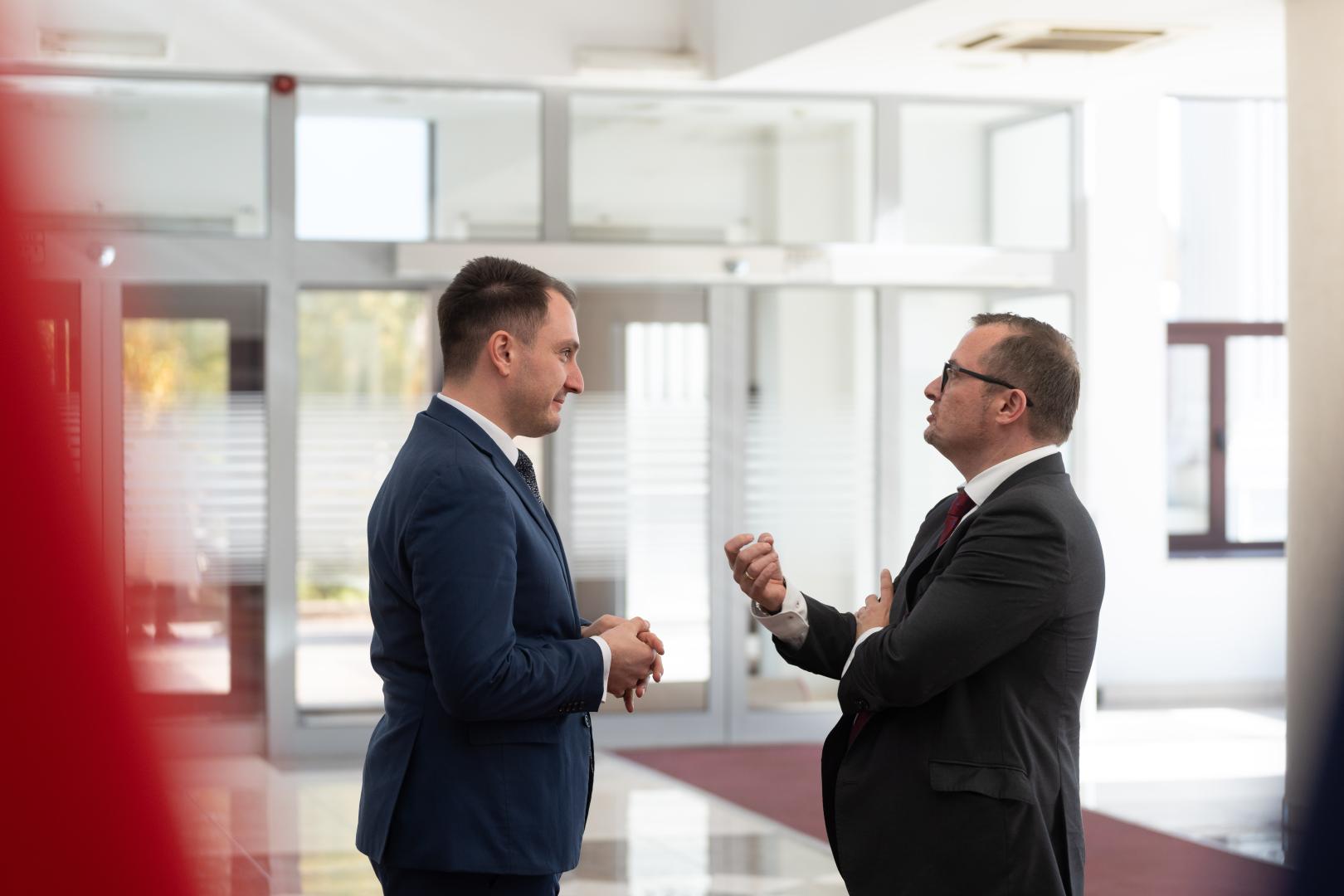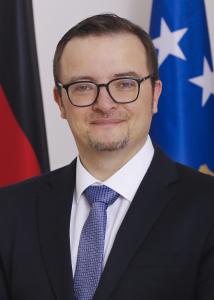The event took take place on the 05th of November at the Big Amphitheatre of the Ministry of Foreign Affairs and Foreign Trade.
The initiative brought together most relevant state actors, representatives of the international community in the country, experts in the field of defence, security and international relations from North Macedonia as well as from the region, who jointly discussed the current security challenges affecting the region and Europe, emphasizing the necessity of more intensive cooperation in times of a constantly changing and uncertain security and geopolitical circumstances.
The event was officially welcomed by the Minister of Foreign Affairs and Foreign Trade Timcho Mucunski. In his welcoming remarks he addressed the audience with the following stetеment: „Now more than ever, we must stand united in defending our values. Freedom, democracy, human rights and self determination. Our strength lies in our unity. NATO must also continue to recognize the Western Balkans as a strategic region. We welcome NATO's increasing engagement and operational presence here. Strong cooperation between NATO and the European Union is vital to regional stability, and we support accelerating the integration of our countries in our region into these alliances to close gaps against malign influences. As a committed NATO ally and future EU member, we remain dedicated to regional stability and global security."
The welcoming addresses continued with the statement of the Official Representative of the KAS in North Macedonia Daniel Braun: “This is a very crucial topic to discuss, because, of course NATO is not at war directly in the conflict between Ukraine and Russia, but cyber attacks, cyber attacks to the German Bundestag, the German Parliament, and a lot of other institutions in Europe are undertaken by Russia. And that means that especially the field of the digital warfare, if I can call this like that is a very important one and has to be considered, because warfare is not just tanks, rifles and grenades or drones, but also there is some kind of invisible place where we also under attack by the Russian Federation sometimes.”
On behalf of the Wilfrid Martens Centre for European Studies as our partner to this project, Panagiotis Tasiopoulos noted in his welcoming addresses: “The brutal Russian invasion in Ukraine, almost three years ago, irrevocably changed the geopolitical landscape and strategic approach of Europe and the west in general. Countries that were once adamantly against NATO right now trying to join its protective umbrella. Thus, it is even to pursue deeper and fuller integration of North Macedonia and the Western Balkans in the Euro Atlantic community and structures. NATO and the EU must not allow these countries to remain in geopolitical limbo.”
Flowing speakers gave their statements within the sessions of the conference, as their contribution to the initiate:
Petra Drexler, Ambassador of the Federal Republic of Germany to North Macedonia: “Trust is one of the most important elements that we have to maintain our unity. So your question on what are the effects if I understood the translation right, of keeping the Western Balkans outside the European Union is, I would say, it undermines trust. And this is what we, as members of the European Union and as members of the NATO Alliance are focused on. Restore the trust in each other and make sure that the attempts to undermine our alliance also by creating mistrust, do not succeed.”
Vlado Misajlovski, Minister of Defence of the Republic of North Macedonia: “Whatever happens, we have to be alert again. Our responsibilities as a country can only increase and together with our allies we should cooperate, especially in the fields of intelligence, counterintelligence, information sharing, because now that we are together in the family we can acquire information that are really important for our security here in the country. A very important thing for the security of everybody here in the country, is to be part of EU.”
Ioannis Armakolas, Associate Professor, University of Macedonia, Greece; Senior Research Fellow & Head of the South-East Europe Programme, Hellenic Foundation for European & Foreign Policy (ELIAMEP): “We are entering or we have entered a period in which we are not only having pushbacks and encountering challenges from nonwestern powers, but also from within our EU, within our NATO, within our own countries. Do we have to give up? No, we shouldn't give up. And also I think through the process of defending our democracies in the EU and enlarging the union and enlarging NATO, we will also make sure that we will strengthen our democracy, strengthen our ability to respond as a West, as EU and as NATO to the international challenges. But it will not be easy!”
Sashko Lafchiski, Chief of General Staff of the Army of the Republic of North Macedonia: “Collective security is fundamental for the region. Collective security is fundamental for all NATO member states. The deployed forces of the Eastern Wing of NATO, where we participate too only show our contribution to the prevention of possible Russian aggression in these territories. NATO is not sitting by, NATO through its operational joint commands is already developing NATO regional plans of defence. We need to integrate our forces, and this is really the most effective way to defend the territorial integrity and sovereignty of our country.”
Todor Tagarev, Institute of Information and Communication technologies of the Bulgarian Academy of Science – Sofia; Former Minister of Defence of the Republic of Bulgaria: “I fully agree with Minister Misajlovski, who stated when he was asked about the major risks, he started with disinformation. I tend to agree that one of the major risks we all face is the foreign interference, malign information that aim to underline our democracies, our societies, and, respectively, defence capacities. At the end, in the field of defense and security,.. we do not have any issues, either bilateral or regional. On the contrary, we have many common interests. There are needs, there are opportunities. We just need to find the best ways to exploit those opportunities.”
Stefan Andonovski, Minister of Digital Transformation of the Republic of North Macedonia: “In the latest NATO communique the term HYBRID is mentioned 17 times. This clearly shows the seriousness that NATO shows related to the hybrid threats. It also considers them to be the most serious challenge of modern times because they are asymmetric, unconventional and have no territory and strict area of operation. As a NATO member state, we have taken an obligation in the previous cyber strategy to establish a centre for dealing with hybrid threats. This is an activity that we take seriously in the Ministry, to think about being a regional center for dealing with hybrid threats, or so-called Centre of Excellence, something that countries in the region are doing in other similar areas. The fight against disinformation... and I will conclude with this... and the cyber threats is not an option, it is a responsibility, and this is why I welcome today's conference and I think it is very important to discuss these topics.”
The conference was attended by more than 150 participants, i.e. stakeholders, experts in the filed of security, defence and international relations, academics, representatives from the non-governmental sector, as well as representatives from the international community. The event had also solid media coverage.



